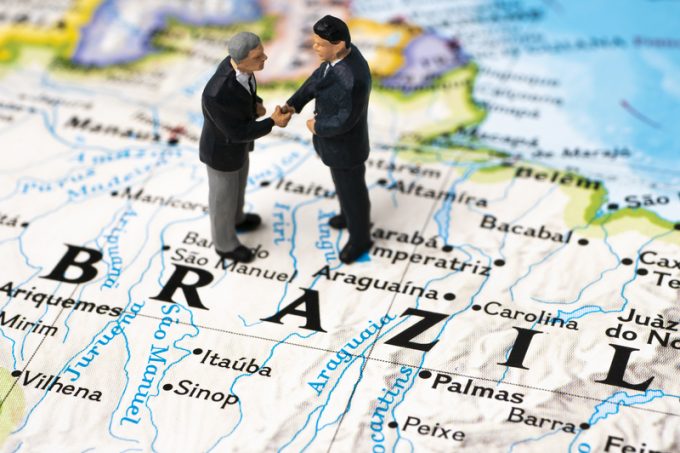Bangladesh looks at demurrage waiver as containers pile up in Chittagong
The Chittagong port yards now have close to 40,000 teu of containers, mainly loaded with ...
TFII: SOLID AS USUALMAERSK: WEAKENINGF: FALLING OFF A CLIFFAAPL: 'BOTTLENECK IN MAINLAND CHINA'AAPL: CHINA TRENDSDHL: GROWTH CAPEXR: ANOTHER SOLID DELIVERYMFT: HERE COMES THE FALLDSV: LOOK AT SCHENKER PERFORMANCEUPS: A WAVE OF DOWNGRADES DSV: BARGAIN BINKNX: EARNINGS OUTODFL: RISING AND FALLING AND THEN RISING
TFII: SOLID AS USUALMAERSK: WEAKENINGF: FALLING OFF A CLIFFAAPL: 'BOTTLENECK IN MAINLAND CHINA'AAPL: CHINA TRENDSDHL: GROWTH CAPEXR: ANOTHER SOLID DELIVERYMFT: HERE COMES THE FALLDSV: LOOK AT SCHENKER PERFORMANCEUPS: A WAVE OF DOWNGRADES DSV: BARGAIN BINKNX: EARNINGS OUTODFL: RISING AND FALLING AND THEN RISING

Brazil’s government must streamline its tax systems to boost trade and reduce the overwhelming levels of congestion that have plagued its ports in recent years.
Chief executive of DHL Supply Chain in Latin America, Javier Bilbao, said Brazil ranked among one of the most complicated countries in the world for logistics operators.
“There are issues with geography and there is a lack of infrastructure encapsulated by poor quality roads away from the main centres,” he told The Loadstar.
“This creates congestion but so too does the complex tax regimes, which create an abundance of unnecessary traffic on the roads.”
Congestion has been a part of life for Brazil’s supply chain providers for decades. As far back as 2007 commentators were warning action was needed to ensure growth.
But while arguments continue to rage over infrastructure projects, Mr Bilbao said there was an immediate fix that could help, at least in the short-term.
“When supply chain leaders are organising their business flows they look both at physical flows and financial flows, in the tax sense,” he continued.
“So, while a warehouse closer to a port may make sense in one way, it may also make sense for them to take advantage of beneficial tax regimes, meaning more vehicles.
“If the country simplified and reduced the various tax regimes it would mean supply chains could focus on physical flows and pull unnecessary vehicles off the roads.”
Mr Bilbao said that while DHL understood it could not influence Brazil’s leadership into making any such changes, it had given its opinion when asked.
He also said he felt that by removing these tax complexities, it could lead to a rush of new business in the country.
“Talks of government tax simplification and rationalisation would go a long way to opening it up,” Mr Bilbao added.
“This would make it more attractive to trade, and I would be surprised if it did not result in heightened levels of business on a global scale.”
There have been some efforts from the current government to open the country up and make it more attractive to trade, and Mr Bilbao said he recognised this.
That being said, the country is also facing a lot of criticism, both internally and externally, over the actions of its government.
“From a trade point of view, there are political ideas and there are economic ideas, the economic changes implemented have been welcomed,” Mr Bilbao said.
“What it should look at doing now is diversifying the goods it exports. The trick here is to use the profits from mining and agriculture to build new industries.”
Despite all the difficulties, Brazil is still one of DHL Supply Chain’s largest markets, not just in Latin America but globally.
Alongside Brazil, strong growth in Argentine, Chile, Colombia, Mexico and Peru made the continent substantial enough to become dedicated region for DHL.
“Latin America is a rapidly growing region for DHL Supply Chain, it’s showing 5.5% CAGR in IT and ranks in the top 10 globally for online consumers,” said Mr Bilbao.
“By 2020, we believe it will have in excess of 450m mobile internet subscriptions, more than double the 200m recorded at the start of 2019.
“And from this we anticipate sizeable growth in e-commerce, up from 2.5% of total retail sales to 20% by next year.”
Comment on this article